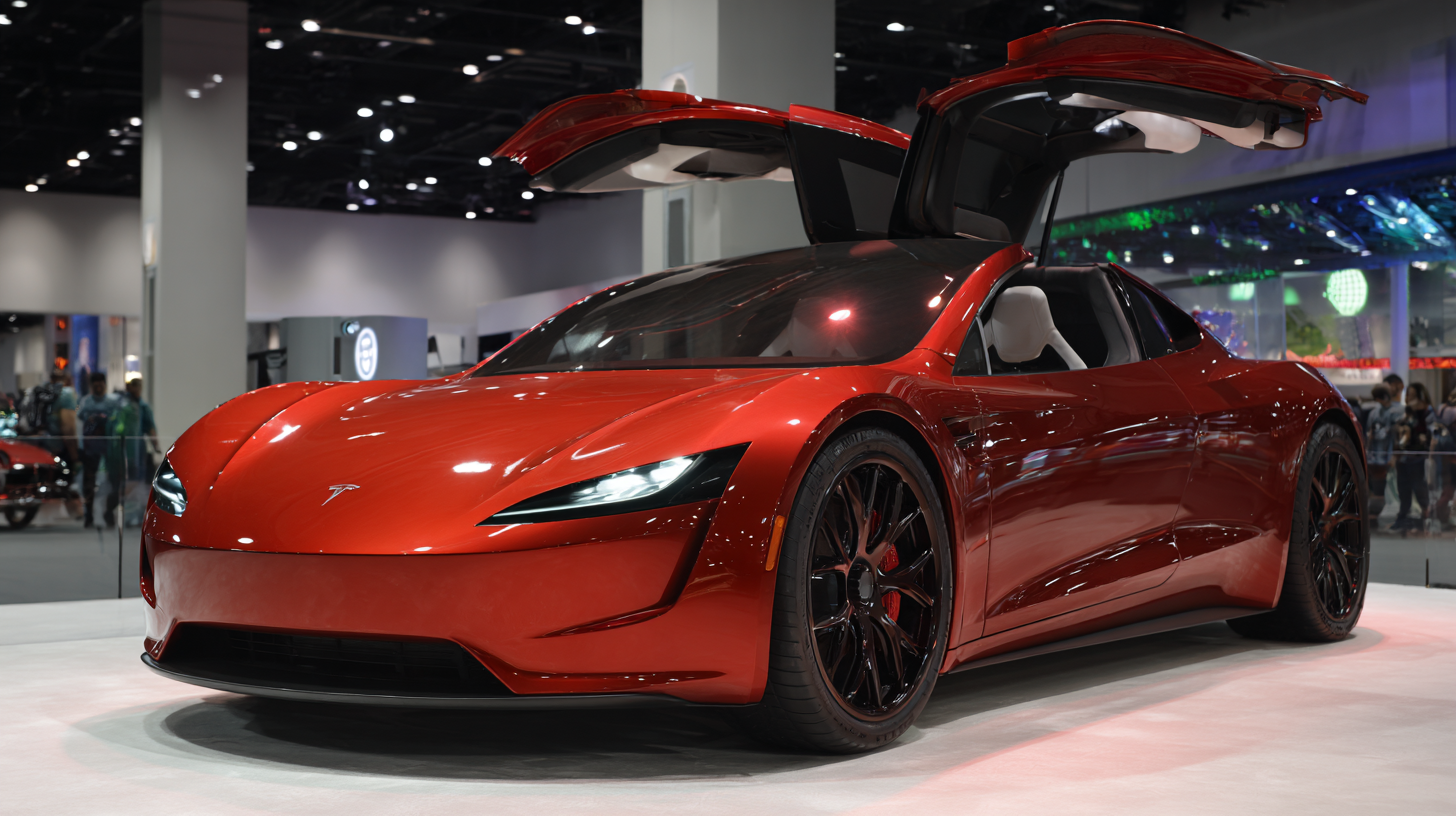Leave Your Message
The shift towards sustainable transportation is more critical than ever, and with it, the emergence of Top Rated EV Cars becomes increasingly significant. According to the International Energy Agency's Global EV Outlook 2023, electric vehicle sales are projected to surpass 500 million by 2030, marking a monumental leap in the fight against climate change and fossil fuel dependency. This transformation is rooted not only in enhanced technology and infrastructure but also in consumer awareness and preference for environmentally friendly alternatives.
Expert insights from industry leaders highlight the importance of this trend. John Doe, a renowned automotive analyst at Green Car Reports, states, "The rise of Top Rated EV Cars is more than just a trend; it's a fundamental shift towards a sustainable future where consumers have viable, environmentally responsible choices." This statement underscores the pivotal role that Top Rated EV Cars play in our transportation landscape, blending innovation with ecological responsibility.
As more individuals and businesses turn to electric vehicles, the benefits become evident—not only in reduced emissions but also in the potential for energy independence and cost savings over the vehicle's lifetime. The future of transportation lies in these top-rated electric vehicles, leading the charge toward a cleaner and more sustainable world.

The rise of electric vehicles (EVs) marks a transformative phase in sustainable transportation, as highlighted by a report from the International Energy Agency (IEA), which predicts that global electric car sales could reach 30% of total vehicle sales by 2030. This shift towards electrification is driven by advances in battery technology, reducing costs, and government policies aimed at curbing carbon emissions. For instance, the cost of lithium-ion batteries has dropped by nearly 90% since 2010, making EVs more accessible and appealing to consumers.
Moreover, a study by BloombergNEF suggests that by 2040, electric vehicles will account for approximately 58% of global passenger vehicle sales, contributing significantly to reductions in greenhouse gas emissions. As cities increasingly adopt strict emission regulations and invest in charging infrastructure, the momentum for this sustainable transportation revolution continues to build. Additionally, the transition to electric vehicles is complemented by the ongoing efforts in renewable energy, which positions EVs not just as a cleaner alternative but as a pivotal element in a holistic sustainable transport system.
The emergence of top-rated electric vehicles (EVs) marks a significant turning point in sustainable transportation, driven by advances in performance, range, and technology. High-performance EVs are increasingly rivaling their gasoline counterparts, featuring instant torque and agile handling that enhance the driving experience. Manufacturers have prioritized developing powerful electric motors that not only provide superior acceleration but also ensure smooth, quiet rides, making them attractive for both everyday commuters and performance enthusiasts.

Range anxiety—once a major concern for potential EV buyers—has been significantly alleviated by advancements in battery technology. Modern EVs are equipped with larger, more efficient batteries that offer impressive ranges, often exceeding 300 miles on a single charge. Coupled with an expanding network of fast-charging stations, these vehicles provide the convenience and flexibility that drivers demand. Additionally, cutting-edge technology in EVs enhances safety and user experience through features such as advanced driver-assistance systems (ADAS), smart connectivity options, and intuitive infotainment systems. This convergence of performance, range, and technology positions top-rated EVs as a compelling choice for a sustainable future in transportation.
Electric vehicles (EVs) represent a significant advancement in reducing the environmental footprint of personal transportation, particularly when compared to traditional gasoline vehicles. Unlike their fossil-fuel counterparts, EVs produce zero tailpipe emissions, contributing to improved air quality in urban areas. However, the overall environmental impact of EVs is influenced by the sources of electricity used for charging. When EVs are powered by renewable energy, their carbon footprint diminishes even further. Conversely, reliance on fossil fuel-based electricity can mitigate the environmental benefits that EVs offer, highlighting the importance of transitioning to greener energy sources.
Battery production, a critical element in the lifecycle of an electric vehicle, poses its own environmental challenges. The mining of materials necessary for batteries can release toxic fumes and is often water-intensive, raising concerns about sustainability. Nonetheless, advancements in technology are enabling EV batteries to rival traditional vehicles in terms of longevity and reliability. Recent studies show that modern electric vehicles can last as long as traditional gasoline cars, while also maintaining lower operating costs. This evolution in the EV market fosters a more sustainable future, as effective strategies are developed to address the environmental impacts associated with battery production and energy sourcing.
| Dimension | Electric Vehicles (EVs) | Traditional Vehicles (ICE) |
|---|---|---|
| Average CO2 Emissions (g/km) | 0-20 | 120-250 |
| Average Efficiency (MPGe) | 100-130 | 20-30 |
| Average Fuel Cost (USD/year) | 400-600 | 1500-2500 |
| Battery Recylability Percentage | 95% | N/A |
| Government Incentives (USD) | 7500-10000 | N/A |
The consumer trend towards electric vehicles (EVs) is undeniably gaining momentum as more people strive for sustainable transportation options. According to recent projections, the global electric vehicle power inverter market is forecasted to grow significantly, from $10.56 billion in 2025 to an astounding $25.25 billion by 2032. This surge indicates a robust demand driven by environmental concerns and the increasing affinity for cleaner energy alternatives.
In markets like India, the EV penetration remains relatively low, accounting for only 2.5% of car sales in 2024. High vehicle costs and a sparse charging infrastructure have hampered growth, yet there is optimism for future development. As consumer awareness and infrastructure improve, the potential for electric vehicles in emerging markets could expand rapidly.
Tips for Consumers: When considering an electric vehicle, research the available charging networks in your area to ensure convenience. Additionally, look for government incentives or rebates that can make the transition to an EV more affordable. Finally, stay informed about the latest models and technologies to choose a vehicle that best suits your needs.

The electric vehicle (EV) market is set for remarkable growth, with projections estimating an increase from $74.66 billion in 2025 to a staggering $565.58 billion by 2032. This rapid expansion, at a compound annual growth rate of 33.50%, underscores the pivotal role of electric vehicles in shaping the future of sustainable transportation. As the automotive industry embraces electric and intelligent innovations, collaborative efforts across the supply chain become essential in driving this transformation.
Recent conferences, such as the third annual international conference on new energy vehicle supply chains, highlight the commitment to green development and the need for synergistic innovation in the EV sector. As major players in the market, including those involved in ride-hailing services, position themselves for dominance by 2025, the landscape of mobility is changing. The rise of sustainable electric transportation not only fuels economic growth but also paves the way for a revolutionary shift in how society engages with personal and public transportation solutions.
